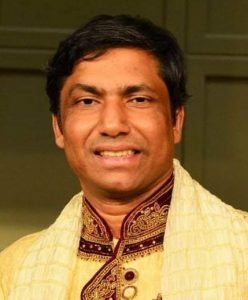By S.K. Sarker :
In the run-up to the upcoming New York City election, candidate Zohran Mamdani’s religion-based statements have stirred growing confusion among voters. Many are now asking: Whose candidate is Zohran Mamdani really? Hindu, Buddhist, Christian, or Muslim?

The reason for this doubt lies in Mamdani’s shifting religious identity depending on his audience.
When addressing Muslim voters, he reportedly introduces himself as a Muslim and seeks votes on that basis. Yet, at Hindu community events, Mamdani comfortably identifies himself as a proud son of a Hindu family.
Reports suggest that he has followed the same pattern at Buddhist and Christian gatherings — presenting himself as a representative of those respective faiths. This inconsistency has made many voters skeptical about his sincerity and true identity.
A religious scholar commented, “It’s fine for Mamdani to visit places of worship and address gatherings — that’s part of campaigning. But using religion as a tool for votes is deeply unjust and unethical.”
A concerned voter added, “At Hindu events, Mamdani refers to his mother, Mira Nair of Punjab, and ties a mangalsutra around his wrist to show solidarity with Hindus. But at Muslim gatherings, with the same mangalsutra still tied, he invokes his father, Mahmood Mamdani of Gujarat, to appeal to Muslim voters. To me, this is clearly contradictory.”
Observers say this kind of identity politics appears to be creating divisions not only among Muslim voters but also among Hindus, fragmenting both communities.
A political analyst noted, “Mamdani is using the Hindu–Muslim issue to emotionally manipulate voters. By invoking religion, he’s spreading a kind of ideological contagion that could deepen religious division and mistrust within the Bangladeshi and South Asian communities in New York.”
Further controversy surrounds Mamdani’s election manifesto, which includes support for legalized prostitution — a position that Islamic scholars have called anti-Islamic, pointing out that Islam never permits such practices. At a campaign rally for Andrew Cuomo, one cleric said, “Supporting prostitution goes directly against Islamic values.”
Other speakers emphasized that New York City’s diverse communities — Hindu, Muslim, Christian, and Buddhist — have long lived together in harmony, and that this interfaith unity must not be destroyed. “By making religion part of his campaign rhetoric, Mamdani is fueling dangerous division,” one said.
Community leader Fahad Solaiman remarked, “During his four years as a State Assemblyman, Mamdani never once identified himself as a Muslim. Now, suddenly, he’s appealing to the community for votes. This opportunism is clear to everyone.”
New York City currently has around 200,000 registered Muslim voters and more than 300,000 South Asians. Mamdani’s main opponent in this election is Independent candidate and former Governor Andrew Cuomo.
For context, Zohran Mamdani’s father, Mahmood Mamdani, is a Muslim from Gujarat, India, while his mother, Mira Nair, is a Hindu from Punjab. The couple lived in Uganda, where Zohran was born.







